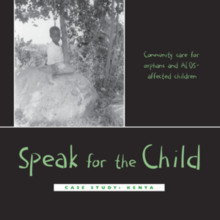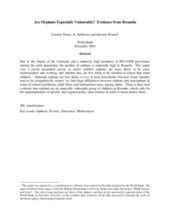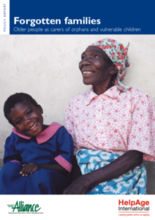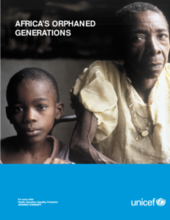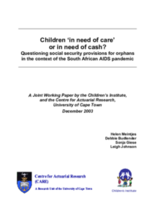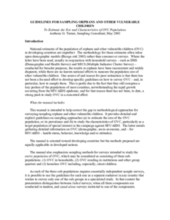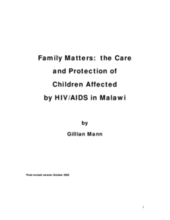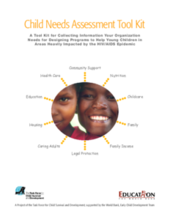Displaying 381 - 390 of 413
A case study of a pilot project in western Kenya focused on community-based orphan care and support. Includes a description of the project activities, including community mobilization and needs assessment, as well as lessons learned and suggestions for improvement.
This research paper explores the condition of orphaned children in Rwanda. The paper urges the design of appropriate social protection mechanisms, including differentiated policy responses, conditional cash transfers and increased access to education.
A publication by International AIDS Alliance and HelpAge International provides an overview of the issues identified by older people and orphans and vulnerable children themselves; examples of community-based programs that are improving the lives of older people and orphans and vulnerable children; recommendations that will help to prioritize orphans and their carers within HIV/AIDS and wider development policies, programs and research.
Current statistics and projections of HIV prevalence and impact on children and families in Sub-Saharan Africa. Outlines a strategy for action which includes collaborative efforts on the part of governments and child-focused agencies to strengthen families, build community capacity and increase awareness.
Research study of the current social security provisions for orphans in South Africa, with a comparison of four alternative cash grant scenarios. Recommends a universal income support system for all children in need.
A manual which seeks to fill the gap in the methods of estimating the population of orphans and vulnerable children in developing countries. The manual includes thorough guidelines on sampling approaches.
Outlines the psychosocial impacts of HIV/AIDS on children and suggests principles and activities to strengthen psychosocial support. Includes a brief list of follow-up resources.
Outlines the impact of HIV/AIDS on children’s education and suggests strategies for meeting children’s educational needs. Includes a list of follow-up resources.
This paper describes a qualitative research study conducted in three villages in Malawi. It explores community mobilization and kinship care, as well as striking discrepancies between the perceptions of adults and children regarding care and support. The paper advocates for increased child decision-making, childcare protection policy, and support networks for orphaned children.
Comprehensive tool for undertaking household surveys in order to assess the needs of caregivers and young children in communities affected by HIV/AIDS. The pack includes detailed guidance on conducting the survey and analyzing the data.

